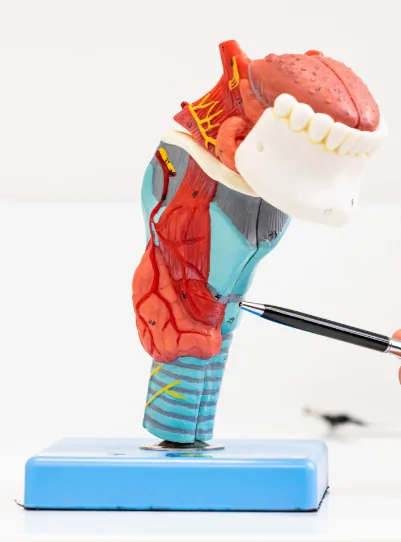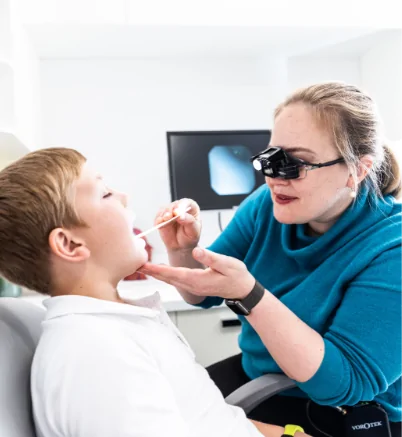
Voice Issues
Your voice is the sound that air makes when forced through your vibrating vocal cords. Voice problems occur when your vocal cords don’t vibrate normally or one of them doesn’t move properly. The most common voice complaint is hoarseness. Others include a change in pitch, a decrease in voice range, tremor or pain when speaking. If you have persistent voice problems, it is likely that your GP would refer you to an ENT specialist.
What causes voice problems?
There are many potential causes of voice problems. These include:
- Laryngitis
Acute laryngitis is a short-lived condition that occurs when the vocal cords become swollen. It is commonly caused by a viral upper respiratory tract infection (a cold), or by overuse of the voice. Chronic laryngitis lasts longer, and is often caused by smoking or acid reflux.
- Benign growths
Benign lesions (growths) of the vocal cords are common, and are often caused by ongoing voice overuse. The most common benign lesions are nodules, polyps and cysts.
- Nerve or muscle disorders
Voice problems could be due to problems with the nerves that supply the vocal muscles, or issues with the muscles themselves. For example, muscle tension dysphonia causes voice problems due to overly tense vocal muscles.
- Brain disorders
Conditions that affect the part of the brain that controls speech can affect the voice. Examples of this include stroke or Parkinson’s disease.
- Larynx cancer
Hoarseness that lasts for longer than three weeks should always be checked, as prolonged hoarseness could be a symptom of larynx cancer.
What can I expect at my ENT specialist visit?
If you are referred to Dr Julia Crawford for voice problems, she will ask you in detail about your medical history before conducting a physical examination. To view your vocal cords, Dr Crawford uses a tiny flexible tube, with a light source and camera at its end (endoscope). After a dose of local anaesthetic spray, the endoscope is inserted through your nostril and the vocal cords are visualised.
How are voice problems treated?
The treatment of voice problems depends on the underlying cause.
Treatment could involve:
- Lifestyle changes
Like stopping smoking.
- Vocal hygiene and speech therapy
To help your voice recover.
- Medication
For specific conditions (such as proton pump inhibitors for reflux).
- Surgery
If necessary.


What is vocal hygiene?
Vocal hygiene is often recommended for the treatment of voice problems. It involves:
- Resting your voice
In particular, it is important to avoid shouting, singing or speaking for prolonged periods.
- Staying well hydrated
- Avoiding irritants
Like cigarette or marijuana smoke.
- Avoiding certain medications
That could dry out your throat.
- Using air humidifiers
As prescribed.
When is surgery needed, and what does it involve?
Surgery may lead to resolution of symptoms for some benign vocal cord lesions. In some cases, removal of a lesion is recommended to rule out cancer.
Surgery for benign vocal cord conditions is done under general anaesthesia, usually as a day procedure. A microscope is used to perform this precise surgery. Surgical recovery is usually uncomplicated, but it is important that you rest your voice completely for several days after the procedure.
Larynx cancer requires surgery for staging, and in most cases, treatment of the cancer. Dr Crawford will involve you, and a multidisciplinary specialist team, in formulating your individual treatment plan.
Persistent voice problems require investigation. Dr Crawford can assist with this, as well as with treatment of the underlying condition. Please contact us at
02 8319 9434 to arrange a consultation.
